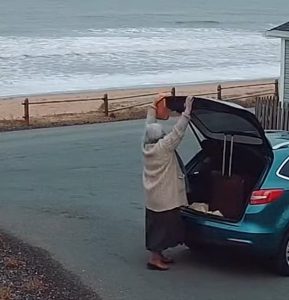You might have spotted small nests or tiny eggs hidden in your bushes, trees, or even on the ground in your yard. While it might be tempting to move them or clean the area, doing so could be illegal—and could seriously harm wildlife.
In the United States and many other countries, birds and their nests are protected by law. For example, the Migratory Bird Treaty Act makes it illegal to disturb, destroy, or move nests with eggs or baby birds inside. This applies to hundreds of bird species, even those that seem common like robins, sparrows, or doves.
Why does it matter? During nesting season, birds are extremely vulnerable. If a nest is disturbed, the parents may abandon it, leaving the babies to die. Additionally, many species are declining due to habitat loss, so every nest counts in helping them survive.
If you find a nest:
- Do not touch or move it.
- Avoid loud noises and activity nearby.
- Teach children to respect wildlife.
In some cases, disturbing a nest can result in hefty fines or legal trouble. So next time you see a delicate little nest in your yard, admire it from a distance—and let nature take its course.





